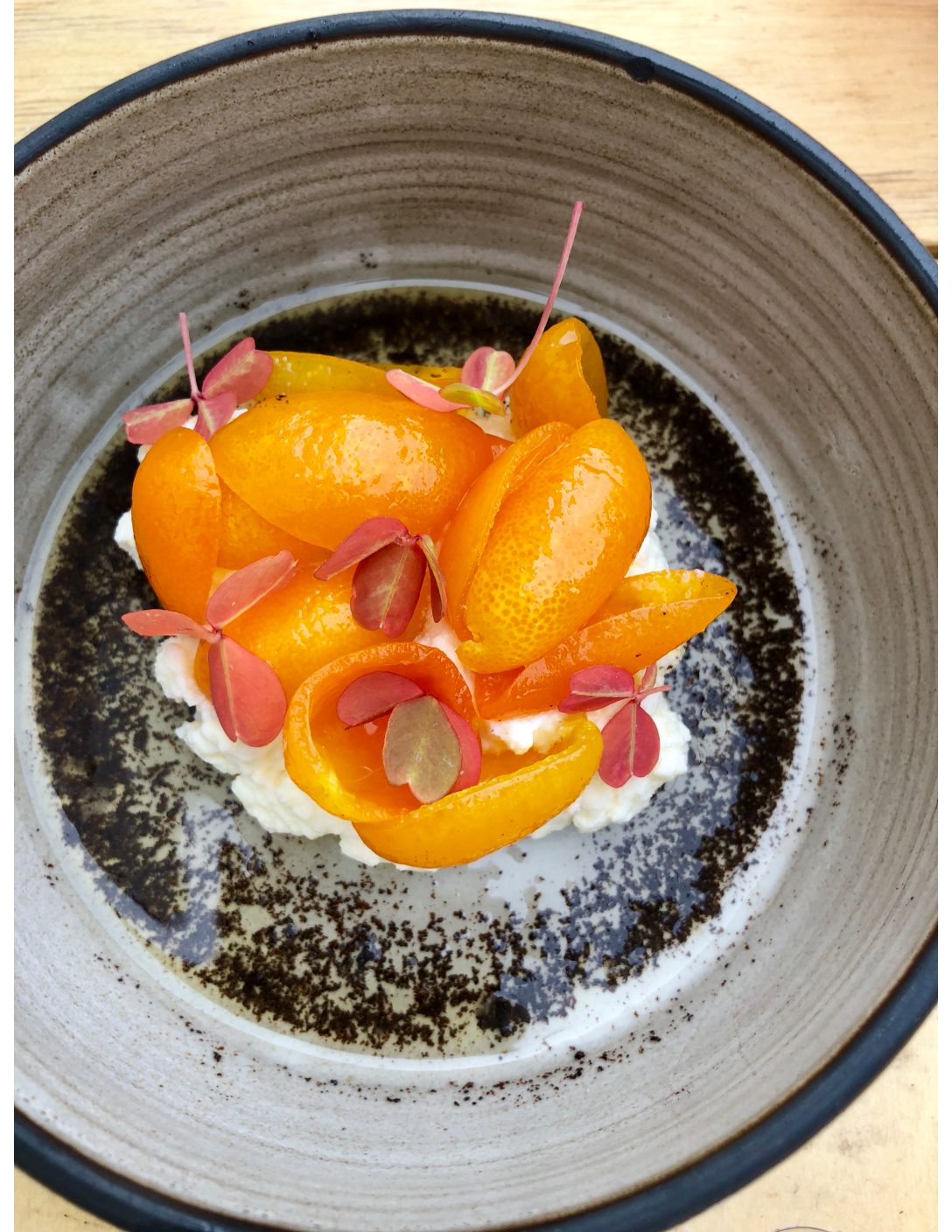
Algren said of Chicago, it’s “Like loving a woman with a broken nose, you may well find lovelier lovelies, but never a lovely so real.” Our modern city is no longer so noble. We now look the other way while construction cranes smash in what’s left of her gin-blossomed nose. We are now subject to a particularly unapologetic L-train-like momentum clanging across the rickety rusty tracks that gird our city, running over anything that would hold us back.
Still, I believe we’ve been fair toward our city’s culinary history. Yes, recently we’ve lost the Berghoff and the Ritz-Carlton dining room, but honest hearts should admit they’d become shadows serving lukewarm wienerschnitzel and ruddy steaks. Now, on June 30, the destroyers moved in upon the 27-year-old Ambria. This time I have some regret that history’s hand has not been so judicious.
Some might point to the wainscoted walls, the suede banquettes and the Art Nouveau chandeliers as a relic. Indeed were they still to serve as the backdrop for the debut nouvelle cuisine that has become de rigeur today, that would be true, but Ambria has always moved forward.
Ambria transformed Rich Melman from hippie-theme restaurateur into a serious haute player. It was the launching pad from which Chef Gabino Sotelino introduced Chicago to tapas at Café Ba Ba Reeba and the rich comfort of a great bistro through Mon Ami Gabi. It was one of Chicago’s first non-smoking restaurants, even to the detriment of world-class conductors. Says Sotelino, “Daniel Barenboim, he’s a very good friend of mine, he liked to smoke cigars. He wasn’t allowed to eat in the restaurant and smoke a cigar. We’d put a table out there [in the lobby of the hotel], so he could eat and smoke.”
And while Sotelino introduced Chicago to nouvelle cuisine at Ambria, today he and executive Chef Christian Eckmann serve an innovative brand of French-licked, but decidedly modern, Spanish eats. Maybe this was the problem. Modern haute Spanish has never really caught on here.
Maybe it was the perception that Sotelino was an old-school chef. As a 13-year-old boy he’d left the seminary (where after breaking the religious code of order, seminarians used to make him kneel on pebbles and whack his hands with a piece of wood) for the culinary world. He’d grown up in the brigade system where old French chefs would throw heavy copper pans, and he started out manually stoking ovens with coal.
Sotelino didn’t like to bend rules. He once even rejected the ill-dressed Mr. T. saying, “This guy walked in here with sneakers, you know he had all these chains all over the place. It looked like a joke to me…I say, ‘Sorry but you need to go put on a jacket and no sneakers.'”
Old-school chefs rarely make political movements though. While developing Ambria, Sotelino took over the helm at Chicago’s Pump Room, where he hired one of the city’s first female sous chefs, Nancy Immel. Of the choice, Sotelino says, “The French chewed my ass for that.”
Sotelino has always been flexible when it counted and the food and the restaurant is as good as it’s ever been, so what gave? I think some part is due to the media obsession with trendiness. While blog and Internet culture have democratized food writing, they’ve also created an obsession with speed. In our fervor for the cutting edge, we write about restaurants before they even open, while we forget old restaurants still executing at a high level.
Diners forget, too, and while food quality should always be paramount, in forgetting we also dishonor a long dedication to craft. Consider Sotelino’s sacrifice. “My kids grew up without seeing me because I was here [at Ambria]. I remember the day my daughter graduated from the American University in Washington, D.C. she gave me a kiss and embraced me and said, ‘Daddy, I hope you spend more time with us.’ This is the only thing I was not proud of…Would I do it again? I don’t know. I believe when you do something that you believe in it, and you work very hard, and you’re so proud about it, I believe you need to put all the energy behind it and reinforce it with passion.”
And when hundreds of new spots open up yearly in a city of already 12,000-plus restaurants, who wants to return to an old stalwart? We should, because if we let our city on the make bowl over classics in favor of theme restaurants, we risk that we will then become a “city of a fakes.”
This article first appeared in Newcity in a slightly different form.

